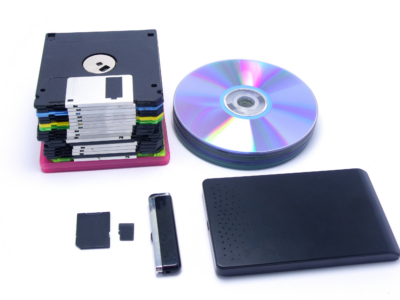Businesses have a lot of valuable assets that need to be protected, and data is one of the most important. Not only can customer data be stolen or lost in the case of a disaster, but company documents and financial information can also be compromised if it’s not stored securely. Reliable backup solutions help businesses protect their data with regular backups and encryption, ensuring that their data is safe even if something unexpected happens. In this blog post, we will provide you with an overview of why reliable backup solutions are important for your business, discuss some tips on how to create secure backups and explore the various options available to ensure your valuable assets are kept safe.
How to Secure Your Valuable Business Data Using Backup Storage
By RoseAnn C

What is data backup and why it is important?
Data backup is the process of creating a copy of data or files in order to protect it from being lost due to accidental deletion, malicious attack, hardware failure, and other events. Backups are essential for businesses because they allow them to quickly recover from any unexpected losses and provide peace of mind that their important documents and information will be safe in case of an emergency. It’s also important to regularly back up data as new versions can become corrupted or outdated over time, meaning backups should be updated regularly in order to ensure all information is current.
Benefits of Having a Reliable Backup Solution in Place
It is very important to keep your data safe. You need a dependable backup solution to make sure your data is always safe and secure. There are many benefits to having a secure and reliable backup system, such as:
- Reduced risk of data loss due to hardware failures or malicious attacks
- Quick recovery from any unexpected losses
- Peace of mind that all information is stored securely
- Ability to easily access backed-up data when needed
- More efficient processes for creating, managing, and restoring backups
- Improved compliance with privacy regulations and industry standards.
By implementing a reliable backup solution into your business, you can rest assured that your valuable assets will be kept safe even if something unexpected happens. This can save time, money, and resources and provide you with peace of mind that your data is secure.

Best Practices when it comes to data backups
To safeguard vital records and information, using appropriate backup systems is an absolute necessity for any business. Here are some best practices when it comes to backups:
- Store backups on multiple devices: This ensures that if one device fails, there will be another copy of the data stored elsewhere.
- Archive old versions of files: Keeping older versions of files can help you quickly restore data to an earlier point if something goes wrong.
- Perform regular tests: Testing your backups regularly helps ensure they are working properly and storing all relevant information correctly.
- Monitor backups regularly: Regularly monitoring your backups allows you to keep track of any changes or issues that may arise in the future.
- Implement security measures: Securing your backups with encryption and other security measures can help prevent anyone from accessing the data without permission.
- Have a plan for data recovery: Having an actionable plan in place for recovering data can help minimize downtime and damage if something goes wrong.
By following these best practices, you can ensure that your business has a robust backup system that will provide protection from unexpected losses. By implementing a secure backup solution, you can easily restore any data that may have been lost and promptly return to operation.

Strategies for monitoring and maintaining backup
Monitoring and maintaining your backups are essential for ensuring that all of your important data is kept safe. Here are some strategies for monitoring and maintaining backups:
- Regularly check backup logs: Checking the logs regularly can help you identify any issues or problems with the system.
- Test restores: Testing restores allows you to ensure that the data being backed up is the same as what will be restored in case of an emergency.
- Monitor storage space: Monitoring your storage space will help you determine when it’s time to upgrade or create additional backups.
- Delete old versions of files: Deleting old versions of files helps keep the size of the backup manageable and ensures that only relevant information is stored.
- Encrypt data: Encrypting your backups provides an extra layer of security and helps protect the data from any malicious attacks.
- Audit backup systems: Auditing your backup systems can help you identify potential weaknesses or vulnerabilities that could be exploited.
Regularly monitoring and maintaining backups will help to reduce the risk of unexpected losses due to unforeseen issues or malicious attacks. With a reliable backup solution in place, you can ensure that your business’s valuable assets are safeguarded from any unexpected losses or risks.
In conclusion, creating and protecting business data backups is essential for the success of any company. A backup solution helps you keep your important information, documents, and data safe from being lost or stolen. The best practices for creating and protecting your business data backups include regularly testing restores, monitoring storage space, deleting old versions of files, encrypting data, auditing backup systems, and more. Following these steps can ensure that your business’s valuable assets are secure and protected at all times.
If you are looking for help with data recovery services, please contact WeRecoverData. Our team of experts has extensive experience in recovering data from any type of device or system. Contact us today and let us help you get your valuable data back.





















